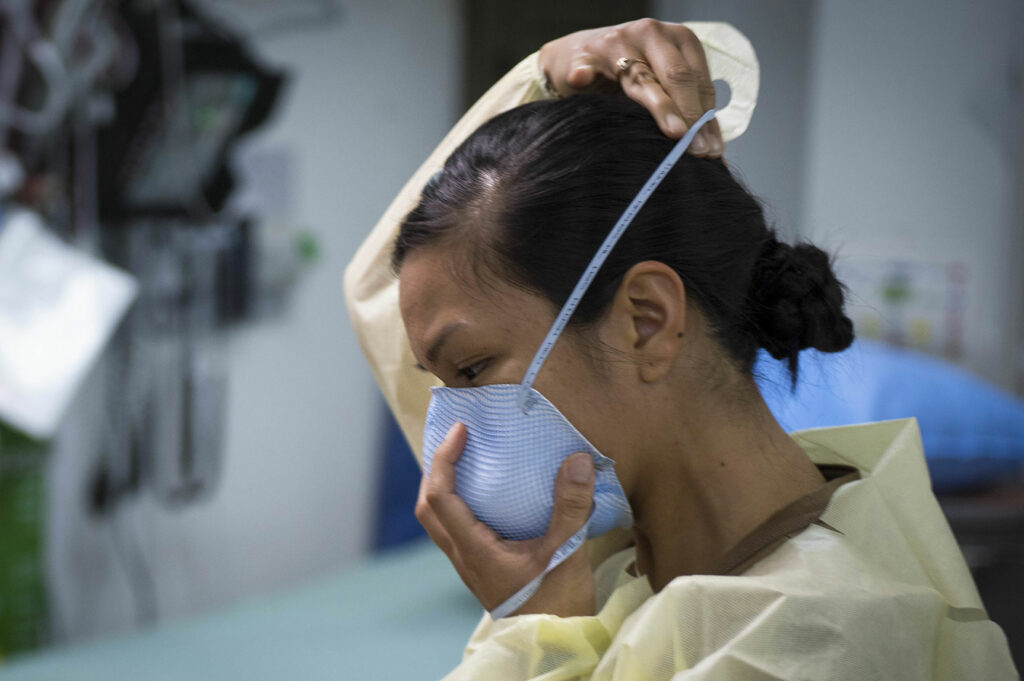Collaborative Governance in Taiwan’s Covid-19 Pandemic Response
Lessons Learned From a Human Rights Perspective
PUBLISHED: MARCH 2023
Authored by ICNL consultant, Shawn Shieh, this report praises Taiwan’s pandemic governance for its transparent, collaborative nature in which government agencies worked with civil society to deal with COVID-19. With low case numbers and death counts, Taiwan was able to avoid stringent measures such as lockdowns and school and workplace closings for much of the pandemic. Unlike many other countries in the region, Taiwan was careful not to impose a state of emergency. Instead, it passed the COVID-19 Special Act in line with the constitution and legislative procedures. These were impressive achievements given that the pandemic generally concentrated greater executive powers in governments worldwide, leading to widespread infringements of civil liberties. The report also finds places where collaborative approach, and attention to human rights, fell short and makes recommendations to Taiwan’s policymakers and civil society on areas for improvement to prepare for the next pandemic.
Using a rights-based analysis that assesses Taiwan’s pandemic governance in three areas – transparency, accountability, and collaboration – this report found multiple good, collaborative practices that contributed to the response effectiveness. These included:
- the use of daily press conferences and social media channels to communicate with the press and public;
- central/local government coordination with the private sector and civil society on manufacturing masks, setting up quarantine services, procuring vaccines, and combating misinformation;
- government cooperation with the civic tech community to scale up a mask map to help people find pharmacies where masks were available, and with fact-checking organizations to counter misinformation regarding the pandemic; and
- local governments working together with groups providing services to the homeless and other vulnerable groups affected by the pandemic, among other examples.
In terms of gaps in Taiwan’s collaborative approach, government collaboration and consultation with civil society was found to be more ad hoc than advertised, and problems with government overreach, accountability, and responsiveness to human rights concerns were not always taken seriously. Moreover, collaborative governance was more limited in the second pharmaceutical phase that started after an outbreak in May 2021. This phase saw greater social and political divisions as the administration came under criticism for not procuring and developing vaccines fast enough to prepare the population. These divisions were exacerbated by China’s role in complicating vaccine procurement and weakened society’s cooperation with and trust in the government, which was evident in the first phase.
This report, highlights ways Taiwan can build on its successful approaches and further institutionalize its collaborative governance approach. It recommends strengthening government engagement with civil society and communities to address concerns around human rights, discrimination, and transparency, further ensure Taiwan’s status as a leader in rights-respecting public health governance, and prepare for the next pandemic.
台灣應對COVID-19 疫情的協力治理: 從人權觀點的經驗學習
台灣的疫情治理因透明、協作等特性廣受讚譽,中央和地方政府與私部門和公民社會共同努力,防止台灣COVID-19疫情擴散。這點在2020年1月至2021年5月間的第一階段,非藥物階段尤為明顯,當時提前關閉邊境並實施旅遊限制。由於確診數和死亡人數低,台灣得以不用採取嚴厲措施,像是進入緊急狀態、封城,或是關閉學校和工作場所等。台灣也與區域內幾個其他國家不同,小心避免實施可能會讓人想起過去威權統治的緊急狀態,而是透過立法,通過COVID-19特別條例(嚴重特殊傳染性肺炎防治及紓困振興特別條例),確保法規符合憲法解釋。鑑於疫情造成各國將更大的行政權力集中於政府手中,進而侵犯公民自由,台灣的成就令人印象深刻。
透過以權利為基礎的分析,我們評估台灣在透明度、問責和協作三方面的疫情治理,發現多個良好的協力治理做法,有助於台灣有效應對疫情,包括利用每日記者會和社群媒體管道與媒體和民眾進行溝通、中央/地方政府與私部門和公民社會針對口罩生產、檢疫服務設立、疫苗採購和不實資訊打擊等事項進行協調。
其他協力治理範例包括政府與公民科技社群合作,擴大口罩地圖,協助民眾找到仍有販售口罩的藥局,以及與事實查核組織合作,打擊疫情相關不實資訊。部分地區的地方政府與當地團體合作,為無家者和其他受疫情影響的弱勢族群提供服務。
雖然這些良好做法凸顯台灣的協作方式,但我們也發現若干落差:政府與公民社會的合作和諮詢安排相對臨時,不如宣傳所呈現;政府越界、問責和外界對人權問題的擔憂也並未獲得認真看待。
此外,在2021年5月疫情爆發後的第二階段,藥物階段,協同治理更加有限。當時只有不到百分之一的人口接種疫苗,且台灣面臨疫苗短缺問題。這一階段出現較大的社會和政治分歧,民進黨領導的政府因疫苗採購和開發速度不夠快,無法讓民眾做好準備而受到批評。又因為中國使疫苗採購更加複雜,加劇社會和政治分歧,並削弱第一階段中社會與政府間的合作和信賴。
這份報告由國際非營利法中心 (ICNL) 支持撰寫,提出台灣可以如何以其成功作法為基礎,進一步制度化協力治理方法。報告概述強化政府與公民社會和社群互動可以如何協助解決人權、歧視和透明度等擔憂,進而鞏固台灣在尊重權利的公共衛生治理上的領導地位

Written by Shawn Shieh (谢世宏), Ph.D.
Shawn Shieh is the Founder and Director of Social Innovations Advisory, Ltd., a contributor to Rights CoLab, and maintains the blog NGOs in China
Sign up for our newsletters
Sign up